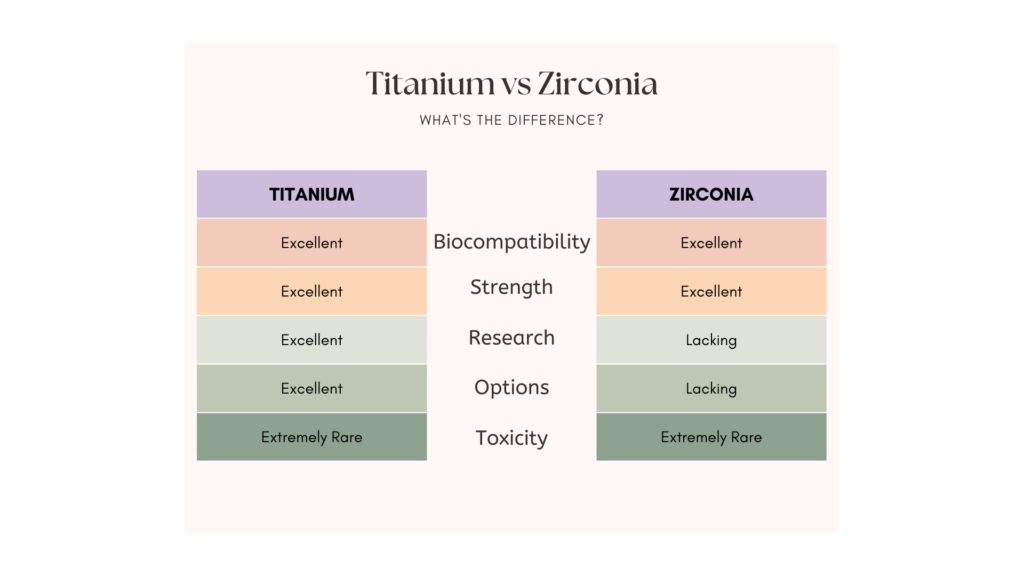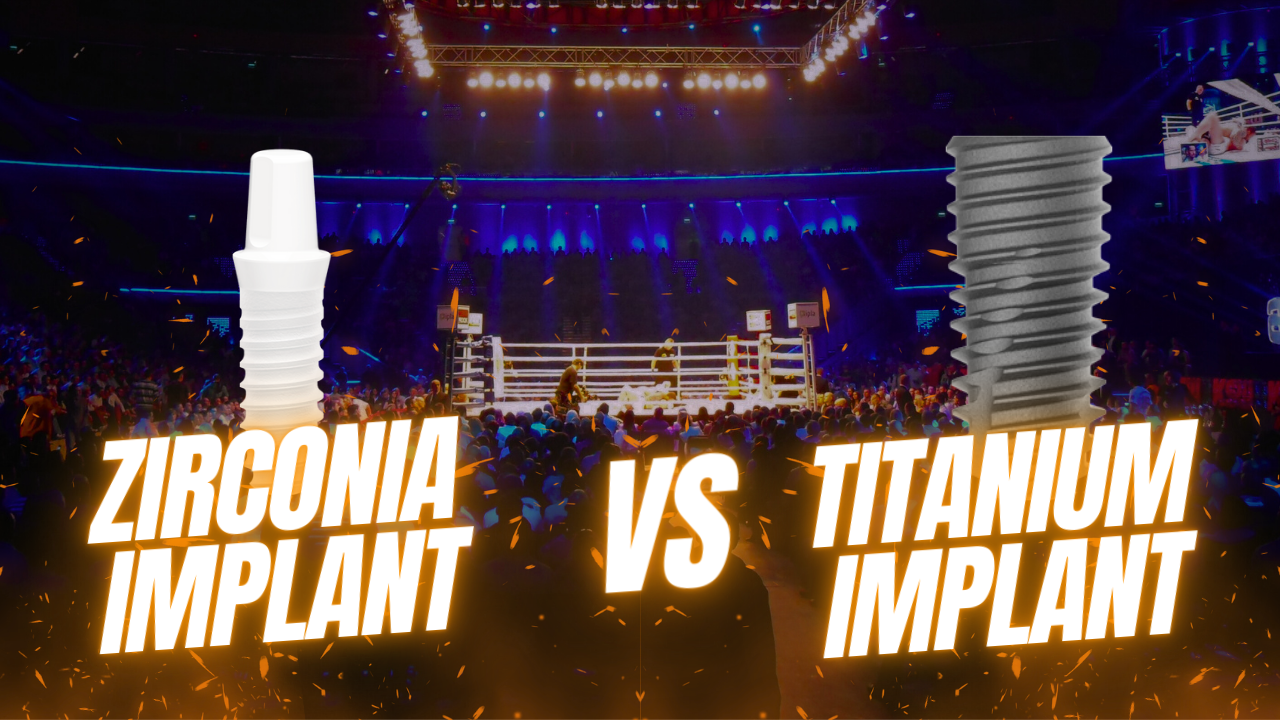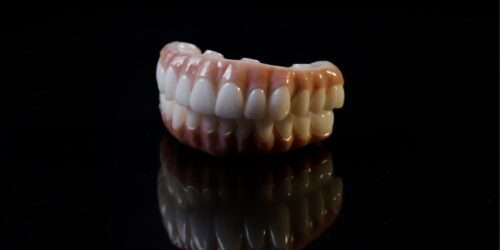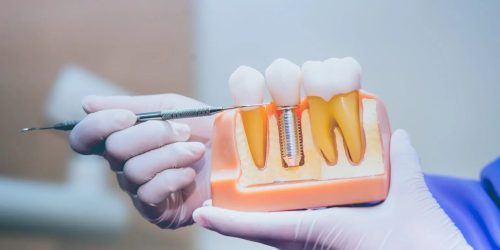Today’s topic is going to focus on something a little newer to the field of implant dentistry: Titanium Dental Implants vs Zirconia Dental implants. I’ll be honest, I’m a little biased since I place titanium implants. I also have never actually seen a zirconia implant in person, not even on an x-ray. Understand, I am talking about the implant itself that gets inserted into the bone during surgery, NOT the teeth that attach to the implant. I use zirconia frequently to restore implants. Although I’ve never seen a zirconia implant, I did a little research, and I feel like I can offer a legitimately useful opinion for the person who is trying to decide between the two options, or wants to learn a little more about the two. What I am comparing today is strictly the two materials in conventional implants. This does not include mini or basal implants, which, to my knowledge, there is no zirconia implant available for either.
Toxicity
One concern I see thrown around from time to time is metal toxicity with titanium implants. Metal toxicity and a metal allergy are both possible, but exceedingly rare. All metals can slowly break down over time. With that said, titanium is stable, safe, and well studied. It is also biocompatible, which means the body doesn’t react to it. I, personally, have never seen a case of metal toxicity involving dental implants, nor have I ever seen symptoms of it. Titanium dental implants are made of the same or similar materials as joint replacements, metal plates, and screws that are used in medical procedures. It is very safe and well studied over time. I would not hesitate for my own mother to receive a titanium dental implant.
With that said, I know some folks will still want to avoid metal, and that’s okay. Keep reading to find out if there is another reasonable option in lieu of titanium!
Titanium Dental Implants
Titanium dental implants come in two varieties – Titanium Alloy and Pure Titanium. If you’ve ever heard anyone say they are allergic to the metals in implants, they are most likely referring to titanium alloy implants. Titanium alloy is a mix of a couple of different metals with titanium. Those metals are aluminum, vanadium, and a small amount of iron. This is also sometimes referred to as Grade V titanium. Pure titanium, on the other hand, is just titanium and no other added metals. Medical grade pure titanium is usually referred to as Grade IV titanium. You may be wondering, “Why on earth would someone add other metals to titanium?” It turns out that adding just a small percentage of specific metals greatly increases the strength of implants. Therefore they break less. I’ve used both quite a bit, and honestly haven’t seen much of a difference between the two. It’s very hard to break either, but it can happen. Both types have great biocompatibility, with a slight edge to pure titanium. Biocompatibility basically means that it doesn’t cause much of an immune response.
Titanium implants have a few advantages over zirconia implants. The first, and biggest, advantage is that titanium implants have a much bigger body of research done on them. For reference, I did a PubMed search on each, which is one of the bigger research article libraries. Titanium implants turned up over 2500 research articles. Zirconia implants turned up just under 300. This is because titanium implants have been around much longer, which is not necessarily a knock on zirconia implants. With that said, a lot more is known about titanium implants and how they act over time. Another advantage for titanium implants is that they have a lot more flexibility in how they can be restored, or, in other words, available parts and techniques to put a tooth on them, especially in situations that are not ideal. For example, if your bone is at a certain angle, then an implant can only be placed at that angle. If this angle is not in line with the tooth that needs to be made, something called a custom abutment can be used to correct the angle. This allows both the tooth and implant to be in the correct position. With zirconia dental implants, the options are much more limited.
From an implant design standpoint, the two are pretty similar. The same guidelines are typically used for both zirconia and titanium dental implants.
Zirconia Dental Implants
Again, like I said before, I have never actually seen a zirconia dental implant, so I’m a bit biased here. Though, I will admit, in my light research on zirconia implants, the results were overwhelmingly positive. They seem to have very similar success rates to titanium implants. Zirconia probably has an edge on titanium in biocompatibility, which basically means the immune system likes it. It’s extremely strong. I’ve heard from other dentists that have used it say it tends to fracture more than titanium, but I was unable to find many research articles to support this. That doesn’t mean that it is not true, though, because remember when I said the research on it is limited? That aspect of it may not have been studied very much yet. One drawback is they are often more expensive than titanium implants. A big advantage over titanium is that it has better aesthetics than titanium. If you have thin gums, sometimes you can see a little gray of a titanium abutment through those thin gums. In my opinion, zirconia dental implants are probably not a bad option. To some degree, though, it is a little bit like being experimented on because of the lack of a large body of literature at this time. That will change as time goes on, though.

In Conclusion…
I honestly think that both titanium dental implants, whether alloy or pure titanium, as well as zirconia implants are all good options to replace missing teeth. I’ll be sticking with titanium for now, but as time goes on I believe zirconia implants will become more common. Titanium will always be more common and easier to use though because it is easier and cheaper to make. Interested in All-on-4 Dental Implants? Schedule a complimentary consultation today to speak with our friendly team!
All advice is my opinion and you should seek professional medical advice from your physician before taking any action.
– Blake Vidrine, DDS





